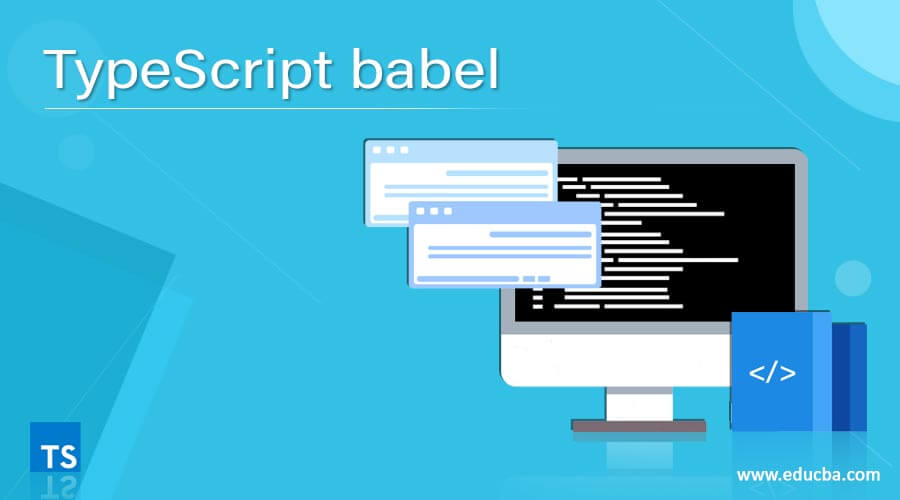Updated April 6, 2023
Introduction to TypeScript babel
Babel is a TypeScript transpiler used to transpile the code into required EMCA script versions that are to ES6, ES7, ES8 etc. because the new features released after ES5 in ES6 and other older versions are not completely supported by all the browsers and hence to be able to use these features in our code and to run the code in all the available browsers, we make use of the tool called Babel to convert all the ES6, ES7, ES8 and other older versions to ES5 and Babel has several features like plugins and presets to configure the EMCA script version.
The syntax to declare a Babel in TypeScript is as follows:
There is no syntax as such to declare a Babel Transpiler
Steps to explain the usage of Babel in TypeScript
- Babel is a TypeScript transpiler used to transpile the code into required EMCA script versions, that is to ES6, ES7, ES8 etc.
- Babel is a TypeScript transpiler used to transpile the code into required EMCA script versions to ES6, ES7, ES8, etc. Because all the browsers do not completely support the new features released after ES5 in ES6 and other older versions.
- To be able to use these features in our code and run the code in all the available browsers, we use the tool called Babel to convert all the ES6, ES7, ES8 and other older versions to ES5.
- Babel has several features like plugins and presets to configure the EMCA script version.
- Babel provides a backward compatibility to the new features added in the ES6 and other older versions of TypeScript, which allows it to run on all the available browsers.
- Babel is also capable of transpiling the code to the next upcoming versions of the EMCA script.
- Babel is very powerful as it can be used in TypeScript and in JavaScript, gulp, etc.
- There are certain features in TypeScript that are not converted when transpiled using Babel and do not run on the older browsers. In such cases, we make use of functionality called Babel polyfilling along with transpiling the code to make it run on the older browsers as well.
- There are several features specific to Babel: Babel plugins, Babel presets, Babel polyfills, etc.
- Babel plugins provide the configuration details for Babel to transpile the code. Babel plugins can be used individually in the environment where the code is going to be executed.
- Babel presets are a set of plugins to the Babel used to instruct the Babel to transpile the code in a particular mode.
- Babel presets must be used in such an environment that supports the conversion of code.
- The most popular Babel presets are env and react.
- Env preset supports the environment we specify along with supporting all the new features of TypeScript.
- React preset is used when we are dealing with React in TypeScript when preset flow and other components are added.
- Webpack is one of the tools used along with Babel whenever there is a necessity to bundle the code.
- Babel can be used on the client-side, server-side and on command line interface as well.
- Babel can be configured in a very easy manner when compared to other transpilers available just by installing the plugins.
- Macros can also be used in the place of plugins, and they can be installed as a dependency that can be imported into the code.
- When the compilation is going by Babel, the macro interfers and does the necessary changes in its own way.
- All the macros are compatible with Babel in TypeScript.
- A bunch of commands are supported by Babel, using which the code can be compiled on the command line as well.
Rules and regulations while working with Babel.
- Babel changes the code’s syntax while it is transpiling to ES6 and other higher versions, which makes understanding of the code very difficult.
- The transpiled code is bigger in size when compared to the original code.
- Some of the new features in ES6 and other higher versions may not be transpiled using Babel in the upcoming versions.
- The Babel’s polyfill property is a must to make the code run on all the older browsers.
Conclusion – TypeScript babel
In this article, we have learned Babel’s concept in TypeScript through the definition and usage of Babel to transpile the code to ES6 and other higher versions along with the limitations while working with Babel.
Recommended Articles
This is a guide to TypeScript babel. Here we discuss the concept of Babel in TypeScript through the definition and usage of Babel to transpile the code to ES6. You may also have a look at the following articles to learn more –



